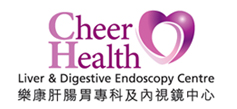
Services
Endoscopic Retrograde Cholangiopancreatography (ERCP)
What is ERCP?
Endoscopic retrograde cholangiopancreatography, or ERCP, refers to a complex medical procedure to study the bile ducts, pancreatic duct and gallbladder and perform therapeutic procedures such as bile duct or pancreatic duct stone retrieval, drainage of obstructed bile duct or pancreatic duct.
Before the Procedure
You need to restrict the diet and drinks at least 6 hours before the procedure. Consult your doctor prior to the procedure to determine if the medications you are on should be taken or not prior to the procedure. Tell your doctor if you have heart or lung diseases or other major diseases.
During ERCP
ERCP is done in hospital setting. You will be asked to sign a form verifies that you consent to having the procedure and that you understand what is involved. If there is anything you do not understand, ask for more information.
During the procedure, an intravenous line, or IV, will be placed to give you medication to make you relaxed and drowsy. Antibiotic may be injected as well. You will le on your abdomen on an X-ray bed. Your doctor will then pass a thin, flexible tube called endoscope through your mouth, esophagus and stomach into the duodenum (first part of the small intestine). After identifying the common opening to the ducts from the liver and pancreas, called the major duodenal papilla, your doctor will pass a narrow plastic tube called a catheter through the endoscope and into the ducts. Contrast material (dye) will be injected into the pancreatic or biliary ducts and will take X-rays.
Possible Complications
Although ERCP is a well tolerated procedure, complications can occur, including bowel perforation, bleeding, infections and pancreatitis. Sometimes patient may develop heart and lung problems after the sedative is used. The risk of complications varies with the therapeutic interventions and whether patient has major medical diseases. Occasionally, the procedure may not completed for technical reason.
After the Procedure
You may feel bloated or pass gas because of the air introduced during the examination. You will continue fasting and will be observed for complications. You can resume usual diet when your doctor instruct your to do so. In general, you need to stay in hospital for at least one day after the procedure.
Vaccination
We provide Hepatitis A, Hepatitis B, combined hepatitis A and B vaccine and other vaccine injection.
